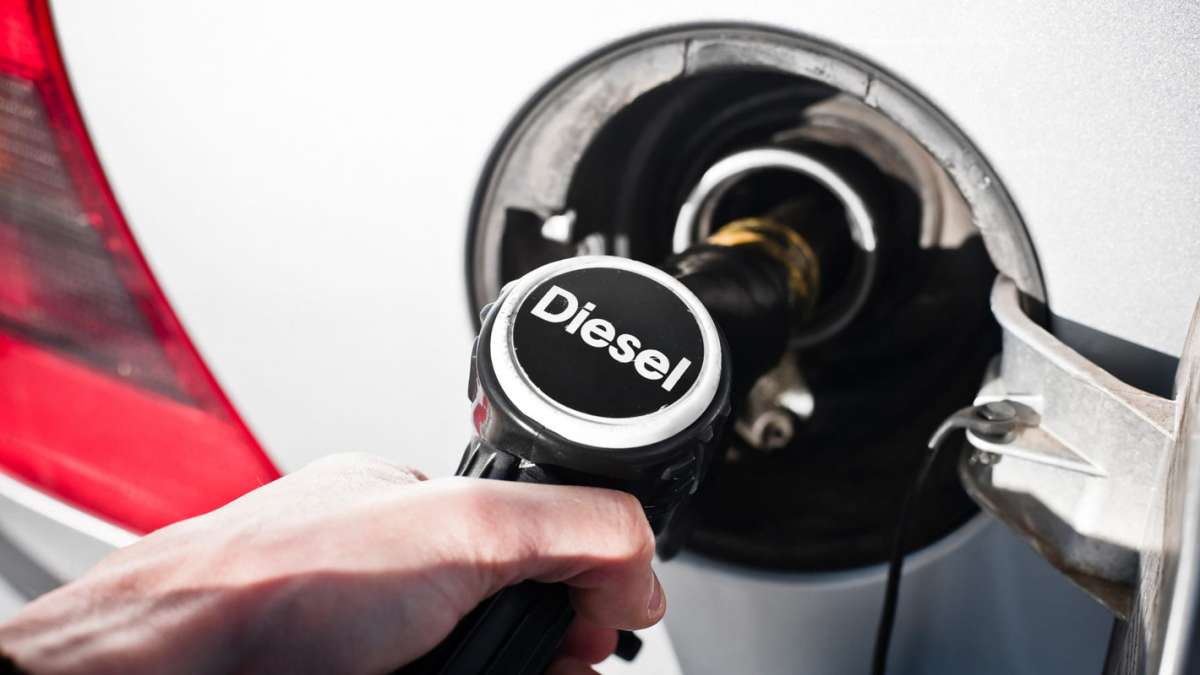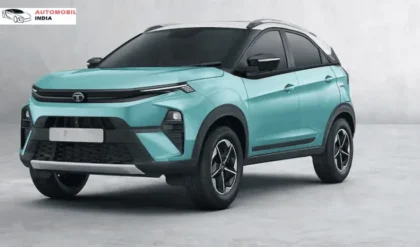Select City
A&N Islands, Andaman Nicobar
Abohar, Punjab
Abu, Rajasthan
Addanki, Andhra Pradesh
Adilabad, Telangana
Adimali, Kerala
Adoni, Andhra Pradesh
Agar Malwa, Madhya Pradesh
Agartala, Tripura
Agra, Uttar Pradesh
Agwanpur, Uttar Pradesh
Ahmedabad, Gujarat
Ahmednagar, Maharashtra
Aizwal, Mizoram
Ajmer, Rajasthan
Ajnala, Punjab
Akbarpur, Rajasthan
Akbarpur, Uttar Pradesh
Akbarpur, Uttarakhand
Akkalkot, Maharashtra
Akluj, Maharashtra
Akola, Maharashtra
Alamcode, Kerala
Alampur, Telangana
Alandi, Maharashtra
Alappuzha, Kerala
Alibag, Maharashtra
Aligarh, Uttar Pradesh
Alipurduar, West Bengal
Alirajpur, Madhya Pradesh
Allahabad, Uttar Pradesh
Alleppey, Kerala
Allur, Andhra Pradesh
Almora, Uttarakhand
Alwar, Rajasthan
Alwaye, Kerala
Amalapuram, Andhra Pradesh
Amaravati (Andhra Pradesh), Andhra Pradesh
Ambajogai, Maharashtra
Ambala Cantt, Haryana
Ambala City, Haryana
Ambalapuzha, Kerala
Ambattur, Tamil Nadu
Ambedkarnagar, Uttar Pradesh
Ambikapur, Chhattisgarh
Amethi, Uttar Pradesh
Amravati (Maharashtra), Maharashtra
Amreli, Gujarat
Amritsar, Punjab
Amroha, Uttar Pradesh
Anakapalle, Andhra Pradesh
Anand, Gujarat
Anandpur Sahib, Punjab
Anantapur, Andhra Pradesh
Anantnag, Jammu & Kashmir
Anekal, Karnataka
Angamaly, Kerala
Angul, Orissa
Anjar, Gujarat
Ankleshwar, Gujarat
Ankola, Karnataka
Annavaram, Andhra Pradesh
Anuppur, Madhya Pradesh
Ara, Bihar
Arakkonam, Tamil Nadu
Aralvaimozhi, Tamil Nadu
Arambagh, West Bengal
Arani, Tamil Nadu
Araria, Bihar
Aravalli, Gujarat
Ariyalur, Tamil Nadu
Arni, Tamil Nadu
Aroor, Kerala
Arwal, Bihar
Asandh, Haryana
Asansol, West Bengal
Ashoknagar, Madhya Pradesh
Ashta, Madhya Pradesh
Astaranga, Orissa
Athani, Karnataka
Atmakur, Andhra Pradesh
Attur, Tamil Nadu
Auraiya, Uttar Pradesh
Aurangabad (Bihar), Bihar
Aurangabad, Maharashtra
Avadi, Tamil Nadu
Avinashi, Tamil Nadu
Ayodhya, Uttar Pradesh
Azamgarh, Uttar Pradesh
Babra, Gujarat
Babrala, Uttar Pradesh
Badami, Karnataka
Badaun, Uttar Pradesh
Baddi, Himachal Pradesh
Badlapur, Maharashtra
Badnagar , Madhya Pradesh
Badohi, Uttar Pradesh
Badrachalam, Andhra Pradesh
Bagalkot, Karnataka
Bagasara, Gujarat
Bageshwar, Uttarakhand
Bagha Purana, Punjab
Baghpat, Uttar Pradesh
Bahadurgarh, Haryana
Baharagora, Jharkhand
Baharampur, West Bengal
Bahraich, Uttar Pradesh
Baikunthpur, Chhattisgarh
Baksa, Assam
Balaghat, Madhya Pradesh
Balakati, Orissa
Balangir, Orissa
Balasinor, Gujarat
Balasore, Orissa
Ballabhgarh, Haryana
Ballia, Uttar Pradesh
Balod, Chhattisgarh
Baloda Bazaar, Chhattisgarh
Balotra, Rajasthan
Balrampur, Chhattisgarh
Balrampur, Uttar Pradesh
Balurghat, West Bengal
Banaskantha, Gujarat
Banda, Uttar Pradesh
Bandipora, Jammu & Kashmir
Bangalore, Karnataka
Bangarapet, Karnataka
Banka, Bihar
Bankura, West Bengal
Banswara, Rajasthan
Bantwal, Karnataka
Bapatla, Andhra Pradesh
Barabanki, Uttar Pradesh
Barackpore, West Bengal
Baragoda, Jharkhand
Baraipali, Orissa
Barajamda, Jharkhand
Baramati, Maharashtra
Baramulla, Jammu & Kashmir
Baran, Rajasthan
Barasat, West Bengal
Barbil, Orissa
Bardez, Goa
Bardoli, Gujarat
Bareilly, Uttar Pradesh
Bargarh, Orissa
Barhi, Jharkhand
Baripada, Orissa
Barkakana, Jharkhand
Barmer, Rajasthan
Barnala, Punjab
Barpeta, Assam
Barshi, Maharashtra
Baruipur, West Bengal
Barwala, Haryana
Barwani, Madhya Pradesh
Basaria, Jharkhand
Basavakalyana, Karnataka
Basirhat, West Bengal
Basna, Chhattisgarh
Bastar, Chhattisgarh
Basti, Uttar Pradesh
Batala, Punjab
Bathinda, Punjab
Bavla, Gujarat
Bazpur, Uttarakhand
Beawar, Rajasthan
Beed, Maharashtra
Begun, Rajasthan
Begusarai, Bihar
Behror, Rajasthan
Belampalli, Telangana
Beldanga, West Bengal
Belgaum, Karnataka
Bellary, Karnataka
Belpahar, Orissa
Belthangady, Karnataka
Belur, Karnataka
Bemetara, Chhattisgarh
Berhampore, West Bengal
Bettiah, Bihar
Betul, Madhya Pradesh
Bewar, Uttar Pradesh
Bhadohi, Uttar Pradesh
Bhadrak, Orissa
Bhadravati, Karnataka
Bhagalpur, Bihar
Bhandara, Maharashtra
Bharanikavu, Kerala
Bharatpur, Rajasthan
Bharuch, Gujarat
Bhatapara, Chhattisgarh
Bhatiya, Gujarat
Bhatkal, Karnataka
Bhavani, Tamil Nadu
Bhavnagar, Gujarat
Bhawanipatna, Orissa
Bhesan, Gujarat
Bhilai, Chhattisgarh
Bhilwara, Rajasthan
Bhimavaram, Andhra Pradesh
Bhind, Madhya Pradesh
Bhiwadi, Rajasthan
Bhiwandi, Maharashtra
Bhiwani, Haryana
Bhojpur, Bihar
Bhopal, Madhya Pradesh
Bhuban, Orissa
Bhubaneswar, Orissa
Bhuj, Gujarat
Bhurkunda S.O, Jharkhand
Bhusawal, Maharashtra
Biaora, Madhya Pradesh
Bicholim, Goa
Bidar, Karnataka
Bihar Sharif, Bihar
Bijapur, Karnataka
Bijapur(CGH), Chhattisgarh
Bijnor, Uttar Pradesh
Bijoynagar, Assam
Bikaner, Rajasthan
Bilaspur (HP), Himachal Pradesh
Bilaspur (Punjab), Punjab
Bilaspur, Chhattisgarh
Bilgi, Karnataka
Bina, Madhya Pradesh
Birbhum, West Bengal
Bishnupur, Manipur
Bishnupur, West Bengal
Bishwanath Charali, Assam
Bodh Gaya, Bihar
Boisar, Maharashtra
Bokajan, Assam
Bokakhat, Assam
Bokaro Steel City, Jharkhand
Boko, Assam
Bolpur, West Bengal
Bongaigaon, Assam
Bongaon, West Bengal
Botad, Gujarat
Boudh, Orissa
Brahmapur, Orissa
Budaun, Uttar Pradesh
Budgam, Jammu & Kashmir
Bulandshahar, Uttar Pradesh
Buldhana, Maharashtra
Bundelkhand, Uttar Pradesh
Bundi, Rajasthan
Bundu, Jharkhand
Burdwan, West Bengal
Burhanpur, Madhya Pradesh
Buxar, Bihar
Byrnihat, Meghalaya
Cachar, Assam
Canacona, Goa
Chakradharpur, Jharkhand
Chalisgaon, Maharashtra
Chamba, Himachal Pradesh
Chamoli, Uttarakhand
Champawat, Uttarakhand
Champhai, Mizoram
Chamrajnagar, Karnataka
Chandauli, Uttar Pradesh
Chandausi, Uttar Pradesh
Chandel, Manipur
Chandigarh, Chandigarh
Chandikhol, Orissa
Chandil, Jharkhand
Chandpur, Uttar Pradesh
Chandrapur, Maharashtra
Chandrapura, Jharkhand
Changanassery, Kerala
Changlang, Arunachal Pradesh
Channapatna, Karnataka
Channarayapattana, Karnataka
Charkhi Dadri, Haryana
Chas, Jharkhand
Chatra, Jharkhand
Chaufula, Maharashtra
Chengalpattu, Tamil Nadu
Chengannur, Kerala
Chenguvetti, Kerala
Chennai, Tamil Nadu
Cheranellore, Kerala
Chhabra, Rajasthan
Chhapra, Bihar
Chhatarpur, Madhya Pradesh
Chhindwara, Madhya Pradesh
Chidambaram, Tamil Nadu
Chikamagalur, Karnataka
Chikhli, Gujarat
Chikkaballapur, Karnataka
Chikodi, Karnataka
Chilakalurupet, Andhra Pradesh
Chinsurah, West Bengal
Chiplun, Maharashtra
Chirala, Andhra Pradesh
Chirang, Assam
Chirimiri, Chhattisgarh
Chitradurga, Karnataka
Chitrakoot, Uttar Pradesh
Chittoor, Andhra Pradesh
Chittorgarh, Rajasthan
Chomu, Rajasthan
Chota Udaipur, Gujarat
Chotila, Gujarat
Churachandpur, Manipur
Churu, Rajasthan
Coimbatore, Tamil Nadu
Contai, West Bengal
Cooch Behar, West Bengal
Coorg, Karnataka
Cortalim, Goa
Cuddalore, Tamil Nadu
Cumbum, Andhra Pradesh
Cuncolim, Goa
Cuttack, Orissa
Dabra, Madhya Pradesh
Dadra & Nagar Haveli, Dadra and Nagar Haveli
Dadri, Uttar Pradesh
Dahanu, Maharashtra
Dahod, Gujarat
Dak. Kannada, Karnataka
Dakshin Dinajpur, West Bengal
Dakshineswar, West Bengal
Dalkhola, West Bengal
Dalli Rajhara, Chhattisgarh
Daltonganj, Jharkhand
Daltongunj, Jharkhand
Daman, Daman & Diu
Damanjodi, Orissa
Damoh, Madhya Pradesh
Damtal, Himachal Pradesh
Danapur, Bihar
Dangs, Gujarat
Dankuni, West Bengal
Dantewada, Chhattisgarh
Dapoli, Maharashtra
Darbhanga, Bihar
Darjeeling, West Bengal
Darrang, Assam
Dasada, Gujarat
Daskroi, Gujarat
Datia, Madhya Pradesh
Daund, Maharashtra
Dausa, Rajasthan
Davanagere, Karnataka
Deesa, Gujarat
Dehradun, Uttarakhand
Delhi, Delhi
Deogarh, Orissa
Deoghar, Jharkhand
Deoria, Uttar Pradesh
Dera Bassi, Punjab
Devanahalli, Karnataka
Devbhumi Dwarka, Gujarat
Devgad, Maharashtra
Dewas, Madhya Pradesh
Dhalai, Tripura
Dhamtari, Chhattisgarh
Dhanaura, Uttar Pradesh
Dhanbad, Jharkhand
Dhandhuka, Gujarat
Dhankal, Orissa
Dhar, Madhya Pradesh
Dharamsala, Himachal Pradesh
Dharamshala, Himachal Pradesh
Dharapuram, Tamil Nadu
Dhari, Gujarat
Dharmanagar, Tripura
Dharmapuri, Tamil Nadu
Dharmavaram, Andhra Pradesh
Dharwad, Karnataka
Dhemaji, Assam
Dhenkanal, Orissa
Dholera, Gujarat
Dholka, Gujarat
Dholpur, Rajasthan
Dhrangadhra, Gujarat
Dhubri, Assam
Dhule, Maharashtra
Dhuri, Punjab
Diamond Harbour, West Bengal
Dibang Valley, Arunachal Pradesh
Dibrugarh, Assam
Didwana, Rajasthan
Digboi, Assam
Dima Hasao, Assam
Dimapur, Nagaland
Dindigul, Tamil Nadu
Dindori - MH, Maharashtra
Dindori, Madhya Pradesh
Diphu, Assam
Diu, Daman & Diu
Doda, Jammu & Kashmir
Doddaballapura, Karnataka
Dombivali, Maharashtra
Duliajan, Assam
Dumka, Jharkhand
Dungarpur, Rajasthan
Durg, Chhattisgarh
Durgapur, West Bengal
East Champaran, Bihar
East Garo Hills, Meghalaya
East Godavari, Andhra Pradesh
East Kameng, Arunachal Pradesh
East Khasi Hills, Meghalaya
East Siang, Arunachal Pradesh
East Sikkim, Sikkim
East Singhbhum, Jharkhand
Edappally, Kerala
Eluru, Andhra Pradesh
Ernakulam, Kerala
Erode, Tamil Nadu
Etah, Uttar Pradesh
Etawah, Uttar Pradesh
Faizabad, Uttar Pradesh
Faridabad, Haryana
Faridkot, Punjab
Farrukhabad, Uttar Pradesh
Fatehabad, Haryana
Fatehgarh Sahib, Punjab
Fatehpur, Uttar Pradesh
Fazilka, Punjab
Firozabad, Uttar Pradesh
Firozpur, Punjab
Gadag, Karnataka
Gadarwara, Madhya Pradesh
Gadchiroli, Maharashtra
Gadhada, Gujarat
Gadhinglaj, Maharashtra
Gadwal, Telangana
Gagret, Himachal Pradesh
Gajapathi, Orissa
Gajraulla, Uttar Pradesh
Gandhidham, Gujarat
Gandhinagar, Gujarat
Ganganagar, Rajasthan
Gangapur, Rajasthan
Gangavathi, Karnataka
Gangtok, Sikkim
Ganj Basoda, Madhya Pradesh
Ganjam, Orissa
Garhwa, Jharkhand
Gariaband, Chhattisgarh
Gariadhar, Gujarat
Gautam Buddha Nagar, Uttar Pradesh
Gaya, Bihar
Ghatotand, Jharkhand
Ghaziabad, Uttar Pradesh
Ghazipur, Uttar Pradesh
Ghogha, Gujarat
Ghumarwin, Himachal Pradesh
Giddalur, Andhra Pradesh
Gidderbaha, Punjab
Giddi, Jharkhand
Gir Somnath, Gujarat
Giridih, Jharkhand
Goa, Goa
Goalpara, Assam
Gobichettipalayam, Tamil Nadu
Gobindpur, Jharkhand
Godawari Khani, Telangana
Godda, Jharkhand
Godhra, Gujarat
Gohana, Haryana
Gokak, Karnataka
Golaghat, Assam
Gomati, Tripura
Gonda, Uttar Pradesh
Gondal, Gujarat
Gondia, Maharashtra
Gonikoppal, Karnataka
Gooty, Andhra Pradesh
Gopalganj, Bihar
Gorakhpur, Uttar Pradesh
Gotegaon, Madhya Pradesh
Greater Noida, Uttar Pradesh
Gudibanda, Karnataka
Gudivada, Andhra Pradesh
Gudur, Andhra Pradesh
Guhagar, Maharashtra
Gulbarga, Karnataka
Gumla, Jharkhand
Gummudipoondi, Tamil Nadu
Guna, Madhya Pradesh
Guntakal, Andhra Pradesh
Guntur, Andhra Pradesh
Gurdaspur, Punjab
Gurgaon, Haryana
Guruharsahai, Punjab
Guwahati, Assam
Gwalior, Madhya Pradesh
Habra, West Bengal
Hailakandi, Assam
Hajipur, Bihar
Hajo, Assam
Haldia, West Bengal
Haldwani, Uttarakhand
Halol, Gujarat
Halvad, Gujarat
Hamirpur (Himachal Pradesh), Himachal Pradesh
Hamirpur (Uttar Pradesh), Uttar Pradesh
Hanamkonda, Telangana
Hansi, Haryana
Hanumangarh, Rajasthan
Hapur, Uttar Pradesh
Harda, Madhya Pradesh
Hardoi, Uttar Pradesh
Haridwar, Uttarakhand
Haridwer, Uttar Pradesh
Haripad, Kerala
Harpanahalli, Karnataka
Hassan, Karnataka
Hathras, Uttar Pradesh
Hatkanangale, Maharashtra
Haveri, Karnataka
Hazaribagh, Jharkhand
Hilsa, Bihar
Himmatnagar, Gujarat
Hindupur, Andhra Pradesh
Hinganghat, Maharashtra
Hingoli, Maharashtra
Hisar, Haryana
Hojai, Assam
Holenarasipur, Karnataka
Honnavar, Karnataka
Hooghly, West Bengal
Hoshangabad, Madhya Pradesh
Hoshiarpur, Punjab
Hoskote, Karnataka
Hospet, Karnataka
Hosur, Tamil Nadu
Howrah, West Bengal
Hubli, Karnataka
Huzurabad, Telangana
Hyderabad, Telangana
Ichalkaranji, Maharashtra
Idukki, Kerala
Igatpuri, Maharashtra
Ilkal, Karnataka
Imphal, Manipur
Indapur, Maharashtra
Indore, Madhya Pradesh
Iritty, Kerala
Itanagar, Arunachal Pradesh
Itarsi, Madhya Pradesh
Itki, Jharkhand
Jabalpur, Madhya Pradesh
Jadcherla, Telangana
Jadugora, Jharkhand
Jafrabad, Gujarat
Jagatsinghpur, Orissa
Jagdalpur, Chhattisgarh
Jaggampeta, Andhra Pradesh
Jaggayyapeta, Andhra Pradesh
Jagi Road, Assam
Jagraon, Punjab
Jagtial, Telangana
Jahazpur , Rajasthan
Jaintia Hills, Meghalaya
Jaipur, Rajasthan
Jaisalmer, Rajasthan
Jajpur (Orissa), Orissa
Jajpur Road, Orissa
Jalalabad, Punjab
Jalalpur, Uttar Pradesh
Jalandhar, Punjab
Jalaun, Uttar Pradesh
Jalgaon, Maharashtra
Jalna, Maharashtra
Jalore, Rajasthan
Jalpaiguri, West Bengal
Jamkhandi, Karnataka
Jammu, Jammu & Kashmir
Jamnagar, Gujarat
Jamshedpur, Jharkhand
Jamtara, Jharkhand
Jamui, Bihar
Jangaon, Telangana
Jangareddygudem, Andhra Pradesh
Janjgir-Champa, Chhattisgarh
Jashpur, Chhattisgarh
Jassur, Himachal Pradesh
Jaunpur, Uttar Pradesh
Jaypore, Orissa
Jaysingpur, Maharashtra
Jehanabad, Bihar
Jeypore, Orissa
Jhabua, Madhya Pradesh
Jhajjar, Haryana
Jhalawar, Rajasthan
Jhansi, Uttar Pradesh
Jhargram, West Bengal
Jharia Khas, Jharkhand
Jharsuguda, Orissa
Jhinkpani, Jharkhand
Jhunjhunu, Rajasthan
Jind, Haryana
Joda, Orissa
Jodhpur, Rajasthan
Joginder Nagar, Punjab
Jorabat, Meghalaya
Jorhat, Assam
Jowai, Meghalaya
Jugsalai, Jharkhand
Junagadh, Gujarat
Kachighatti, Himachal Pradesh
Kadapa, Andhra Pradesh
Kadur, Karnataka
Kagal, Maharashtra
Kagaznagar, Telangana
Kaimur (Bhabua), Bihar
Kaithal, Haryana
Kakatpur, Orissa
Kakinada, Andhra Pradesh
Kalahandi, Orissa
Kalamassery, Kerala
Kalimpong, West Bengal
Kalka-HP, Himachal Pradesh
Kalka, Haryana
Kallakurichi, Tamil Nadu
Kalol, Gujarat
Kalpa, Himachal Pradesh
Kalpetta, Kerala
Kalwakurthy, Telangana
Kalyan, Maharashtra
Kalyani, West Bengal
Kamaraj, Tamil Nadu
Kamleshwar, Maharashtra
Kamptee, Maharashtra
Kamrup, Assam
Kanakapura, Karnataka
Kancheepuram, Tamil Nadu
Kandarpur, Orissa
Kandhamal, Orissa
Kandukur, Andhra Pradesh
Kangra, Himachal Pradesh
Kanhan, Maharashtra
Kanhangad, Kerala
Kanigiri, Andhra Pradesh
Kanjirappally, Kerala
Kankavali, Maharashtra
Kanker, Chhattisgarh
Kannauj, Uttar Pradesh
Kannur, Kerala
Kanpur Dehat, Uttar Pradesh
Kanpur Nagar, Uttar Pradesh
Kanpur, Uttar Pradesh
Kanth, Uttar Pradesh
Kanyakumari, Tamil Nadu
Kapadvanj, Gujarat
Kapren, Rajasthan
Kapurthala, Punjab
Karad, Maharashtra
Karaikal, Pondicherry
Karaikudi, Tamil Nadu
Karauli, Rajasthan
Karbi Anglong, Assam
Kareli, Madhya Pradesh
Kargil, Jammu & Kashmir
Karimganj, Assam
Karimnagar, Telangana
Karjat, Maharashtra
Karkala, Karnataka
Karmad, Maharashtra
Karmala, Maharashtra
Karnal, Haryana
Karunagappally, Kerala
Karur, Tamil Nadu
Karwar, Karnataka
Kasaragod, Kerala
Kasauli, Himachal Pradesh
Kasganj, Uttar Pradesh
Kashipur, Uttarakhand
Kathua, Jammu & Kashmir
Katihar, Bihar
Katni, Madhya Pradesh
Katol, Maharashtra
Kattappana, Kerala
Kaushambi, Uttar Pradesh
Kavali, Andhra Pradesh
Kawardha, Chhattisgarh
Kayamkulam, Kerala
Kekri , Rajasthan
Kendrapada, Orissa
Kendrapara, Orissa
Keonjhar, Orissa
Keshod, Gujarat
Khagaria, Bihar
Khairtabad, Telangana
Khalari, Jharkhand
Khalilabad, Uttar Pradesh
Khambha, Gujarat
Khambhalia, Gujarat
Khamgaon, Maharashtra
Khammam, Telangana
Khandwa, Madhya Pradesh
Khanna, Punjab
Kharagpur, West Bengal
Kharar, Chandigarh
Khardaha, West Bengal
Khargone, Madhya Pradesh
Khariberia, West Bengal
Kharsia, Chhattisgarh
Kharupetia, Assam
Khatauli, Uttar Pradesh
Khatima, Uttarakhand
Khed, Maharashtra
Kheda, Gujarat
Khelari, Jharkhand
Khetri, Assam
Khopoli, Maharashtra
Khordha, Orissa
Khowai, Tripura
Khunti, Jharkhand
Khurda, Andhra Pradesh
Khurda, Orissa
Kim, Gujarat
Kinnaur, Himachal Pradesh
Kiphire, Nagaland
Kishanganj, Bihar
Kishangarh, Rajasthan
Kishtwar, Jammu & Kashmir
Kochi, Kerala
Kodagu, Karnataka
Kodar, Telangana
Kodarma, Jharkhand
Kodinar, Gujarat
Kodungallur, Kerala
Koduru, Karnataka
Kohima, Nagaland
Koira, Orissa
Kokrajhar, Assam
Kolar, Karnataka
Kolasib, Mizoram
Kolhapur, Maharashtra
Kolkata, West Bengal
Kollam, Kerala
Kollancherry, Kerala
Kollegal, Karnataka
Konark, Orissa
Kondagaon, Chhattisgarh
Kopargaon, Maharashtra
Koppal, Karnataka
Koraput, Orissa
Koratla, Telangana
Korba, Chhattisgarh
Koriya, Chhattisgarh
Kosli, Haryana
Kota, Rajasthan
Kotdwar, Uttarakhand
Kothamangalam, Kerala
Kotkapura, Punjab
Kotma, Madhya Pradesh
Kotputli, Rajasthan
Kottagudem, Telangana
Kottakkal, Kerala
Kottapatnam, Andhra Pradesh
Kottarakkara, Kerala
Kottayam, Kerala
Kovilpatti, Tamil Nadu
Kozhencherry, Kerala
Kozhikode, Kerala
Krishna, Andhra Pradesh
Krishnagiri, Tamil Nadu
Krishnanagar, West Bengal
Kuchaman, Rajasthan
Kudal, Maharashtra
Kujang, Orissa
Kuju, Jharkhand
Kulgam, Jammu & Kashmir
Kullu, Himachal Pradesh
Kumbakonam, Tamil Nadu
Kumhari, Chhattisgarh
Kumta, Karnataka
Kundapura, Karnataka
Kundrathur, Tamil Nadu
Kunigal, Karnataka
Kunkavav, Gujarat
Kunnamkulam, Kerala
Kupwara, Jammu & Kashmir
Kurdwadi, Maharashtra
Kurnool, Andhra Pradesh
Kurukshetra, Haryana
Kurung Kumey, Arunachal Pradesh
Kushinagar, Uttar Pradesh
Kutch, Gujarat
Kuzhithurai, Tamil Nadu
Lahaul And Spiti, Himachal Pradesh
Lailunga, Chhattisgarh
Lakhimpur Kheri, Uttar Pradesh
Lakhisarai, Bihar
Lakshadweep, Kerala
Lalitpur, Uttar Pradesh
Lanja, Maharashtra
Latehar, Jharkhand
Latur, Maharashtra
Lawngtlai, Mizoram
Leh, Jammu & Kashmir
Liliya, Gujarat
Limdi, Gujarat
Lohardaga, Jharkhand
Lohit, Arunachal Pradesh
Lonavla, Maharashtra
Longleng, Nagaland
Lower Dibang Valley, Arunachal Pradesh
Lower Subansiri, Arunachal Pradesh
Lucknow, Uttar Pradesh
Ludhiana, Punjab
Lunglei, Mizoram
Maadhavaram, Tamil Nadu
Machhiwara, Punjab
Machilipatnam, Andhra Pradesh
Madanapalle, Andhra Pradesh
Madgaon, Goa
Madha, Maharashtra
Madhepura, Bihar
Madhubani, Bihar
Madhyamgram, West Bengal
Madikeri, Karnataka
Madurai, Tamil Nadu
Magadi, Karnataka
Mahabubabad, Telangana
Mahad, Maharashtra
Maharajganj, Uttar Pradesh
Mahasamund, Chhattisgarh
Mahbubnagar, Telangana
Mahe, Kerala
Mahendragarh, Haryana
Maheshtala, West Bengal
Mahisagar, Gujarat
Mahoba, Uttar Pradesh
Mahuva, Gujarat
Mahwa, Rajasthan
Maibang, Assam
Maihar, Madhya Pradesh
Mainpuri, Uttar Pradesh
Maithon, Jharkhand
Majuli , Assam
Malappuram, Kerala
Malda, West Bengal
Malegaon, Maharashtra
Maler Kotla, Punjab
Malia, Gujarat
Malkangiri, Orissa
Mallapuram, Tamil Nadu
Malout, Punjab
Malsiras, Maharashtra
Malvan, Maharashtra
Mamit , Mizoram
Manali, Himachal Pradesh
Manavadar, Gujarat
Mancheral, Telangana
Mandangad, Maharashtra
Mandapeta, Andhra Pradesh
Mandasur, Madhya Pradesh
Mandi Dabwali, Haryana
Mandi Gobindgarh, Punjab
Mandi, Himachal Pradesh
Mandla, Madhya Pradesh
Mandrup, Maharashtra
Mandya, Karnataka
Manendragarh, Chhattisgarh
Manesar, Haryana
Mangalagiri, Andhra Pradesh
Mangaldai, Assam
Mangalore, Karnataka
Mangalpur, Orissa
Mangalwedha, Maharashtra
Mangrol, Gujarat
Maninagar, Gujarat
Manjeri, Kerala
Mansa, Punjab
Mapusa, Goa
Margao, Goa
Margherita, Assam
Markapur, Andhra Pradesh
Marthandam, Tamil Nadu
Mathura, Uttar Pradesh
Mau, Uttar Pradesh
Mauda, Maharashtra
Mavelikara, Kerala
Mawana, Uttar Pradesh
Mayiladuthurai, Tamil Nadu
Mayurbhanj, Orissa
Mayurbhanja, Orissa
Medak, Telangana
Meerut, Uttar Pradesh
Mehsana, Gujarat
Mendarda, Gujarat
Merta, Rajasthan
Mesra, Jharkhand
Metpally, Telangana
Metupalayam, Tamil Nadu
Mewat, Haryana
Mhow, Madhya Pradesh
Midnapore, West Bengal
Minjur, Tamil Nadu
Miraj, Maharashtra
Miryalaguda, Telangana
Mirzapur, Uttar Pradesh
Modasa, Gujarat
Modinagar, Uttar Pradesh
Moga, Punjab
Mohali, Punjab
Mohania, Bihar
Mohol, Maharashtra
Mokokchung, Nagaland
Mon, Nagaland
Moradabad, Uttar Pradesh
Morbi, Gujarat
Moreh, Manipur
Morena, Madhya Pradesh
Morigaon, Assam
Morinda, Punjab
Motihari, Bihar
Mudhol, Karnataka
Mughalsarai, Uttar Pradesh
Mukerian, Punjab
Muktsar, Punjab
Mulbagal, Karnataka
Muli, Gujarat
Mullanpur, Punjab
Mumbai, Maharashtra
Mummidivaram, Andhra Pradesh
Mungeli, Chhattisgarh
Munger, Bihar
Munnar, Kerala
Murdeshwar, Karnataka
Murgud, Maharashtra
Murshidabad, West Bengal
Muvattupuzha, Kerala
Muzaffarnagar, Uttar Pradesh
Muzaffurpur, Bihar
Mysore, Karnataka
Nabarangapur, Orissa
Nabha, Punjab
Nadia, West Bengal
Nadiad, Gujarat
Nagaon, Assam
Nagapattinam, Tamil Nadu
Nagaur, Rajasthan
Nagercoil, Tamil Nadu
Nagpur, Maharashtra
Nagrota, Punjab
Naharlagun, Arunachal Pradesh
Naidupeta, Andhra Pradesh
Naihati, West Bengal
Nainital, Uttarakhand
Nainital, Uttarakhand
Najibabad, Uttar Pradesh
Nakodar, Punjab
Nalagarh, Himachal Pradesh
Nalanda, Bihar
Nalbari, Assam
Nalgonda, Telangana
Namakkal, Tamil Nadu
Nanded, Maharashtra
Nandurbar, Maharashtra
Nandyal, Andhra Pradesh
Nangal, Punjab
Narasapur, Telangana
Narasaropet, Andhra Pradesh
Narasinghpur, Madhya Pradesh
Narayangaon, Maharashtra
Narayanpur, Chhattisgarh
Narmada, Gujarat
Narnaul, Haryana
Narsapuram, Andhra Pradesh
Narwana, Haryana
Nashik, Maharashtra
Navelim, Goa
Navi Mumbai, Maharashtra
Navsari, Gujarat
Nawada, Bihar
Nawanshahr, Punjab
Nayagarh, Orissa
Nedumangad, Kerala
Neemuch, Madhya Pradesh
Nelamangala, Karnataka
Nellore, Andhra Pradesh
Netarhat, Jharkhand
Nevasa, Maharashtra
Neyveli, Tamil Nadu
Neyyattinkara, Kerala
Nidadavole, Andhra Pradesh
Nidhori, Maharashtra
Nilambur, Kerala
Nilgiris, Tamil Nadu
Nimapara, Orissa
Nimbahera, Rajasthan
Nirjuli, Arunachal Pradesh
Nirmal, Telangana
Nizamabad, Telangana
Nizampatam, Andhra Pradesh
Njarackal, Kerala
Noida, Uttar Pradesh
Nongpoh, Meghalaya
Noorpur, Uttar Pradesh
North 24 Parganas, West Bengal
North Arcot, Tamil Nadu
North Goa, Goa
North Guwahati, Assam
North Lakhimpur, Assam
North Sikkim, Sikkim
North Tripura, Tripura
Nuapada, Orissa
Nuh, Haryana
Nurpur Bedi, Punjab
Nurpur, Himachal Pradesh
Nuvem, Goa
Nuzvid, Andhra Pradesh
Oddanchatram, Tamil Nadu
Ongole, Andhra Pradesh
Ooty, Tamil Nadu
Orai, Uttar Pradesh
Osmanabad, Maharashtra
Ottapalam, Kerala
Pachmarhi, Madhya Pradesh
Padrauna, Uttar Pradesh
Paithan, Maharashtra
Pakur, Jharkhand
Pala, Kerala
Palakkad, Kerala
Palakollu, Andhra Pradesh
Palampur, Himachal Pradesh
Palamu, Jharkhand
Palani, Tamil Nadu
Palanpur, Gujarat
Palayankottai, Tamil Nadu
Palghar, Maharashtra
Pali, Rajasthan
Palitana, Gujarat
Pallikarnai, Tamil Nadu
Palwal, Haryana
Pampady, Kerala
Panaji, Goa
Panchkula, Haryana
Panchmahal, Gujarat
Pandharpur, Maharashtra
Panipat, Haryana
Panjim, Goa
Panna, Madhya Pradesh
Panoor, Kerala
Panruti, Tamil Nadu
Panvel, Maharashtra
Paonta Sahib, Himachal Pradesh
Papum pare, Arunachal Pradesh
Paradeep, Orissa
Parappanangadi, Kerala
Paratwada, Maharashtra
Parbhani, Maharashtra
Parli, Maharashtra
Parshivni, Maharashtra
Paschim Medinipur, West Bengal
Pashchim Champaran, Bihar
Pasighat, Arunachal Pradesh
Pasumpon, Tamil Nadu
Patan, Gujarat
Pataudi, Haryana
Pathalgaon, Chhattisgarh
Pathanamthitta, Kerala
Pathankot, Punjab
Patiala, Punjab
Patna, Bihar
Patran, Punjab
Patratu, Jharkhand
Pattambi, Kerala
Pattamundai, Orissa
Pauri Garhwal, Uttarakhand
Payal, Punjab
Payyanur, Kerala
Pazhayannur, Kerala
Peddapalli, Telangana
Peddepuram, Andhra Pradesh
Pehowa, Haryana
Pen, Maharashtra
Pendra, Chhattisgarh
Perambalur, Tamil Nadu
Peren, Nagaland
Perintalmanna, Kerala
Perinthani, Kerala
Pernem, Goa
Perumbavoor, Kerala
Perumpilavu, Kerala
Phagwara, Punjab
Phaltan, Maharashtra
Phek, Nagaland
Pileru, Andhra Pradesh
Pilibhit, Uttar Pradesh
Pimpri-Chinchwad, Maharashtra
Pinjore, Haryana
Pinjore, Himachal Pradesh
Pipili, Orissa
Piravom, Kerala
Pithapuram, Andhra Pradesh
Pithoragarh, Uttarakhand
Pollachi, Tamil Nadu
Ponda, Goa
Pondicherry, Pondicherry
Ponneri, Tamil Nadu
Ponnur, Andhra Pradesh
Poonamallee, Tamil Nadu
Poonch, Jammu & Kashmir
Porbandar, Gujarat
Port Blair, Andaman Nicobar
Porvorim, Goa
Prakasam, Andhra Pradesh
Prantij, Gujarat
Pratapgarh (Rajasthan), Rajasthan
Pratapgarh (Uttar Pradesh), Uttar Pradesh
Prathipadu, Andhra Pradesh
Proddatur, Andhra Pradesh
Pudukkottai, Tamil Nadu
Pulgaon, Maharashtra
Pulwama, Jammu & Kashmir
Pune, Maharashtra
Punganur, Andhra Pradesh
Purandar, Maharashtra
Purba Medinipur, West Bengal
Puri, Orissa
Purnea, Bihar
Purulia, West Bengal
Pusad, Maharashtra
Puttaparthi, Andhra Pradesh
Puttur, Karnataka
Puvar, Kerala
Quaid-E-Milleth, Tamil Nadu
Quepem, Goa
Rae Bareli, Uttar Pradesh
Raghunathpur, Orissa
Rahama, Orissa
Rahuri, Maharashtra
Raichur, Karnataka
Raigad, Maharashtra
Raiganj, West Bengal
Raigarh, Chhattisgarh
Raikot, Punjab
Raipur, Chhattisgarh
Raisen, Madhya Pradesh
Rajahumundry, Andhra Pradesh
Rajapalayam, Tamil Nadu
Rajapur, Maharashtra
Rajgangpur, Orissa
Rajgarh, Madhya Pradesh
Rajim, Chhattisgarh
Rajkot, Gujarat
Rajnandgaon, Chhattisgarh
Rajouri, Jammu & Kashmir
Rajpura, Punjab
Rajsamand, Rajasthan
Rajula, Gujarat
Ramagundam, Telangana
Ramanagara, Karnataka
Ramanathapuram, Tamil Nadu
Ramban, Jammu & Kashmir
Rambha, Orissa
Rameswaram, Tamil Nadu
Ramganj mandi, Rajasthan
Ramgarh Cantt, Jharkhand
Ramgarh, Jharkhand
Ramnad, Tamil Nadu
Rampur (Himachal Pradesh), Himachal Pradesh
Rampur (Uttar Pradesh), Uttar Pradesh
Ranaghat, West Bengal
Ranchi, Jharkhand
Ranebennur, Karnataka
Ranga Reddy, Telangana
Rangia, Assam
Raniganj, West Bengal
Ratlam, Madhya Pradesh
Ratnagiri, Maharashtra
Raver, Maharashtra
Ravulapalem, Andhra Pradesh
Rawatbhata, Rajasthan
Rayadrug, Andhra Pradesh
Rayagada, Orissa
Raygada, Orissa
Rayya, Punjab
Razole, Andhra Pradesh
Reasi, Jammu & Kashmir
Redhills, Tamil Nadu
Renukut, Uttar Pradesh
Repalle, Andhra Pradesh
Rewa, Madhya Pradesh
Rewari, Haryana
Ri Bhoi, Meghalaya
Rishikesh, Uttarakhand
Robertsganj, Uttar Pradesh
Rohru, Himachal Pradesh
Rohtak, Haryana
Rohtas, Bihar
Roorkee, Uttarakhand
Ropar, Punjab
Rourkela, Orissa
Rudraprayag, Uttarakhand
Rudrapur, Uttarakhand
Rupnagar, Punjab
Sabarkantha, Gujarat
Sagar, Madhya Pradesh
Sagara, Karnataka
Sagwara, Rajasthan
Saharanpur, Uttar Pradesh
Saharsa, Bihar
Sahibabad, Uttar Pradesh
Sahibganj, Jharkhand
Saiha, Mizoram
Sakhigopal, Orissa
Sakleshpura, Karnataka
Salem, Tamil Nadu
Salipur, Orissa
Samalkot, Andhra Pradesh
Samana, Punjab
Samastipur, Bihar
Samba, Jammu & Kashmir
Sambalpur, Orissa
Sambhal, Uttar Pradesh
Samrala, Punjab
Sanand, Gujarat
Sanawad, Madhya Pradesh
Sanchore, Rajasthan
Sandila, Uttar Pradesh
Sanga Reddy, Telangana
Sangamner, Maharashtra
Sangareddi, Telangana
Sangli, Maharashtra
Sangola, Maharashtra
Sangrama, Jammu & Kashmir
Sangrur, Punjab
Sanguem, Goa
Sant Kabir Nagar, Uttar Pradesh
Sant Ravidas Nagar, Uttar Pradesh
Saraipali, Chhattisgarh
Saran, Bihar
Sarangarh, Chhattisgarh
Sasaram, Bihar
Saswad, Maharashtra
Satara, Maharashtra
Satna, Madhya Pradesh
Sattenapalle, Andhra Pradesh
SavarKundla, Gujarat
Savner, Maharashtra
Sawai Madhopur, Rajasthan
Sawantwadi, Maharashtra
Secunderabad, Telangana
Sehore, Madhya Pradesh
Senapati, Manipur
Seoni, Madhya Pradesh
Sepahijala, Tripura
Seraikela-kharsawan, Jharkhand
Serampore, West Bengal
Serchhip, Mizoram
Shadnagar, Telangana
Shahada, Maharashtra
Shahapur, Maharashtra
Shahdol, Madhya Pradesh
Shaheed Bhagat Singh Nagar, Punjab
Shahganj, Uttar Pradesh
Shahjahanpur, Uttar Pradesh
Shajapur, Madhya Pradesh
Shamli, Uttar Pradesh
Sharanpur, Uttar Pradesh
Sheikhpura, Bihar
Sheohar, Bihar
Sheopur, Madhya Pradesh
Shikohabad, Uttar Pradesh
Shillong, Meghalaya
Shimla, Himachal Pradesh
Shimoga, Karnataka
Shirdi, Maharashtra
Shirur, Maharashtra
Shirwal, Maharashtra
Shivpuri, Madhya Pradesh
Shoghi, Himachal Pradesh
Shopian, Jammu & Kashmir
Shrirampur, Maharashtra
Sibsagar, Assam
Siddharthnagar, Uttar Pradesh
Siddipet, Telangana
Sidhi, Madhya Pradesh
Sihor, Gujarat
Sikar, Rajasthan
Silchar, Assam
Siliguri, West Bengal
Sillod, Maharashtra
Silvassa, Dadra and Nagar Haveli
Silvassa, Daman & Diu
Silvassa, Gujarat
Simdega, Jharkhand
Sindagi, Karnataka
Sindhdurg, Maharashtra
Singar Nagar, Uttar Pradesh
Singra, Assam
Singrauli, Madhya Pradesh
Singur, West Bengal
Sinnar, Maharashtra
Sipajhar, Assam
Sirhind, Punjab
Sirmaur, Himachal Pradesh
Sirohi, Rajasthan
Sirsa, Haryana
Sirsi, Karnataka
Sirsilla, Telangana
Sitamarhi, Bihar
Sitapur, Uttar Pradesh
Sivagangai, Tamil Nadu
Sivakasi, Tamil Nadu
Sivasagar, Assam
Siwan, Bihar
Sodawas, Rajasthan
Sohna, Haryana
Solan, Himachal Pradesh
Solapur, Maharashtra
Sonapur, Assam
Sonari, Assam
Sonarpur, West Bengal
Sonbhadra, Uttar Pradesh
Sonepur, Bihar
Sonepur, Orissa
Soneswar, Assam
Sonipat, Haryana
Sonitpur, Assam
South 24 Paraganas, West Bengal
South Arcot, Tamil Nadu
South Garo Hills, Meghalaya
South Goa, Goa
South Sikkim, Sikkim
South Tripura, Tripura
Sravasti, Uttar Pradesh
Sriganganagar, Rajasthan
Srikakulam, Andhra Pradesh
Srikalahastri, Andhra Pradesh
Srinagar, Jammu & Kashmir
Sriperumbudur, Tamil Nadu
Srivilliputtur, Tamil Nadu
Sukma, Chhattisgarh
Sullia, Karnataka
Sullurupeta, Andhra Pradesh
Sultanpur, Uttar Pradesh
Sunabeda, Orissa
Sunam, Punjab
Sundargarh, Orissa
Sundergarh, Orissa
Supaul, Bihar
Surajpur, Chhattisgarh
Surat, Gujarat
Surendranagar, Gujarat
Surguja, Chhattisgarh
Suri, West Bengal
Suriapet, Telangana
Sutrapada, Gujarat
Tadepallegudem, Andhra Pradesh
Tadpatri, Andhra Pradesh
Talacher, Orissa
Talaja, Gujarat
Talala, Gujarat
Talcher, Orissa
Taliparamba, Kerala
Talwandi Sabo, Punjab
Talwara, Punjab
Tamenglong, Manipur
Tamluk, West Bengal
Tandur, Telangana
Tanuku, Andhra Pradesh
Tapi, Gujarat
Tarakeswar, West Bengal
Tarn Taran, Punjab
Tawang, Arunachal Pradesh
Tebhurni, Maharashtra
Tehri Garhwal, Uttarakhand
Telidih, Jharkhand
Tenali, Andhra Pradesh
Tenkasi, Tamil Nadu
Tensa, Orissa
Tezpur, Assam
Tezu, Arunachal Pradesh
Thalassery, Kerala
Thane, Maharashtra
Thanjavur, Tamil Nadu
Tharad, Gujarat
Theni, Tamil Nadu
Thiruthani, Tamil Nadu
Thiruvalla, Kerala
Thiruvallur, Tamil Nadu
Thiruvananthapuram, Kerala
Thiruvarur, Tamil Nadu
Thivim, Goa
Thodupuzha, Kerala
Thoothukudi, Tamil Nadu
Thoubal, Manipur
Thrissur, Kerala
Thuckalay, Tamil Nadu
Tikamgarh, Madhya Pradesh
Tilda, Chhattisgarh
Tindivanam, Tamil Nadu
Tinsukia, Assam
Tiptur, Karnataka
Tirap, Arunachal Pradesh
Tirtol, Orissa
Tiruchengode, Tamil Nadu
Tiruchirappalli, Tamil Nadu
Tirunelveli, Tamil Nadu
Tirupathur, Tamil Nadu
Tirupati, Andhra Pradesh
Tiruppur, Tamil Nadu
Tirur, Kerala
Tiruttani, Tamil Nadu
Tiruvannamalai, Tamil Nadu
Tiruvuru, Andhra Pradesh
Titlagarh, Orissa
Tonk, Rajasthan
Trimulgherry, Telangana
Tuensang, Nagaland
Tumkur, Karnataka
Tumsar, Maharashtra
Tuni, Andhra Pradesh
Tura, Meghalaya
Tuticorin, Tamil Nadu
Udaipur-Tripura, Tripura
Udaipur, Rajasthan
Udalguri, Assam
Udgir, Maharashtra
Udham Singh Nagar, Uttarakhand
Udhampur, Jammu & Kashmir
Udumalpet, Tamil Nadu
Udupi, Karnataka
Ujjain, Madhya Pradesh
Ukhrul, Manipur
Ulhasnagar, Maharashtra
Umaria, Madhya Pradesh
Umrala, Gujarat
Umred, Maharashtra
Una (Gujarat), Gujarat
Una (HP), Himachal Pradesh
Unakoti, Tripura
Unnao, Uttar Pradesh
Upper Siang, Arunachal Pradesh
Upper Subansiri, Arunachal Pradesh
Uttar Dinajpur, West Bengal
Uttar Kannada, Karnataka
Uttarkashi, Uttarakhand
Vadakara, Kerala
Vadodara, Gujarat
Vaibhavwadi, Maharashtra
Vaijanath, Maharashtra
Vaijapur, Maharashtra
Vaishali, Bihar
Vallabhipur, Gujarat
Valpoi, Goa
Valsad, Gujarat
Valvada, Gujarat
Vaniyambadi, Tamil Nadu
Vanthali, Gujarat
Vapi, Gujarat
Varanasi, Uttar Pradesh
Vasai, Maharashtra
Vasco, Goa
Vatakara, Kerala
VEDARANIYAM, Tamil Nadu
Velachery, Tamil Nadu
Vellore, Tamil Nadu
Vengara, Kerala
Vengurla, Maharashtra
Venkatagiri, Andhra Pradesh
Veraval, Gujarat
Verna, Goa
Vidisha, Madhya Pradesh
Vijapur, Gujarat
Vijaywada, Andhra Pradesh
Vikarabad, Telangana
Vikasnagar, Uttarakhand
Villupuram, Tamil Nadu
Vinukonda, Andhra Pradesh
Viramgam, Gujarat
Virar, Maharashtra
Virudhunagar, Tamil Nadu
Visakhapatnam, Andhra Pradesh
Visavadar, Gujarat
Visnagar, Gujarat
Vizianagaram, Andhra Pradesh
Vriddhachalam, Tamil Nadu
Vuyyuru, Andhra Pradesh
Wadkhal, Maharashtra
Wai, Maharashtra
Waidhan, Madhya Pradesh
Wanaparthy, Telangana
Wani, Maharashtra
Waranakadoli, Maharashtra
Warangal, Telangana
Wardha, Maharashtra
Washim, Maharashtra
Wayanad, Kerala
West Garo Hills, Meghalaya
West Godavari, Andhra Pradesh
West Kameng, Arunachal Pradesh
West Khasi Hills, Meghalaya
West Siang, Arunachal Pradesh
West Sikkim, Sikkim
West Singhbhum, Jharkhand
West Tripura, Tripura
Wokha, Nagaland
Yadadri Bhuvanagiri, Telangana
Yadgir, Karnataka
Yamunanagar, Haryana
Yanam, Pondicherry
Yavatmal, Maharashtra
Yellandu, Telangana
Yellapur, Karnataka
Yeole, Maharashtra
Yeotamal, Maharashtra
YSR District, Andhra Pradesh
Zaheerabad, Telangana
Zira, Punjab
Zirakpur, Punjab
Zunhebotto, Nagaland







